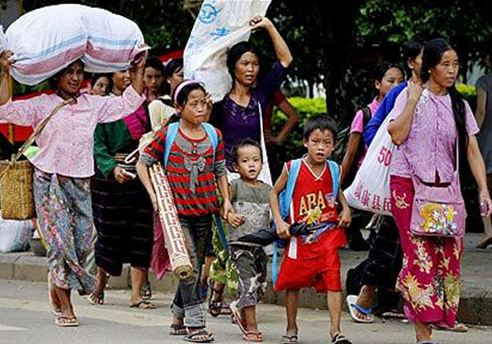As the number of migrant workers reaches 4 million in Thailand, the National Health Workforce Commission plans to temporarily tackle the shortage of doctors, nurses, simultaneous translators and health personnel by importing personnel from neighboring countries to serve ill migrants in designated areas and maintain sufficient health services for Thai patients.
Recently the National Health Workforce Commission chaired by Dr Mongkol Na Songkhla considered a health workforce plan concerning health services for migrant workers. The plan was proposed by Dr Phusit Prakongsai, director of the International Health Policy Program Office, in his capacity as secretary to a subcommittee facilitating the implementation of resolutions from the 63rd World Health Assembly. The plan results from an academic conference on the health of migrant workers and solutions for fairness in health systems on October 15, 2012.

According to reports, legal and illegal migrant workers amount to as many as 4 million in Thailand; therefore, resources must be developed to provide them with sufficient health services especially in the provinces where fishery and tourism are active as well as in border provinces including Samut Sakhon, Phuket, Tak and Chon Buri. The numbers of migrant workers seeking services from state-owned health facilities in these provinces are overwhelming and exceeding the capacities of existing health personnel. There are also communication problems with migrant workers. Besides, ill aliens considerably occupy beds at hospitals because they see doctors only when they are critically ill. This affects Thai patients who have to resort to private hospitals.
Hospitals are facing the following problems.
- There are not enough personnel to serve both Thai and alien patients.
- There are communication difficulties with aliens.
- The bed occupancy rate among aliens is high, hospitals cannot collect fees from such alien patients and illegal migrant workers have no health welfare.
- Most alien workers who join the Social Security system do not know about the selection of hospitals and the exercise of their rights.
- Migrant workers bring both communicable diseases and chronic diseases including the tuberculosis that is resistant to drugs, meningitis, elephantiatis, malaria, HIV, diabetes and hypertension.
- Alien mothers and their children have health problems. Many alien mothers must be in maternal intensive care units (MICUs) and their newborns must be treated in neonatal intensive care units (NICUs)
The formation of the ASEAN Community is likely to bring about the following problems.
- Temporary shelters will be dissolved. The non-governmental organizations (NGOs) that provide primary care will leave and the people who live in the shelters as well as people in neighboring countries will seek services at Thai health facilities.
- Epidemics that exist in border areas will increasingly enter Thailand.
Three solutions to propose.
In its recent meeting, the health workforce commission acknowledged three proposed solutions.
- Regulations will be studied for the import of alien personnel who will practice in Thailand. This refers particularly to simultaneous translators who can be temporary employees of the government and alien doctors and nurses who will have practicing licenses to treat alien patients in specified areas and periods. Although the Medical Council of Thailand is issuing temporary licenses, the licenses are for doctors working in refugee camps or the hospitals of foundations and charities only.
- A pay-for-performance system will be introduced to respond to the heavy workloads of personnel.
- Surveys and researches will be conducted to assess the movements of migrant workers and the shortage of health personnel due to workloads. The results will be the basis for the planning of personnel production and solutions in the future. The commission agreed unanimously that short and long-term plans for the production of health personnel must address not only health care for Thai people but also that for migrant workers and those who do not hold the Thai nationality.
Besides, the health workforce commission resolved that its secretariat will convince concerned committees and organizations including the Medical Council of Thailand and the Ministry of Public Health to cooperate with short and long-term solutions because problems concerning migrant workers are serious and Thailand will join the ASEAN Community in 2015 and thus has to cope with the movements of workers that will increase in accordance with investment trends in the future.
The commission endorsed strategies for Transforming health professions’ education to suit health demands in Thailand. This is among the nine agendas in the 5th National Health Assembly that is set at the Bangkok International Trade & Exhibition Centre in Bang Na, Bangkok, from December 18 to 20. The commission also acknowledged results from a study on the overseas work of Thai nurses by Assoc Prof Dr Nanthapan Chinlamprasert et al who discovered many hardships of Thai nurses in other countries. In addition, the commission approved strategies for local workforce management in accordance with the second phase of the action plan for the implementation of strategies for the national health workforce (2013-2016) to decentralize authority in workforce management to local officials.
Source: www.ryt9.com/ posted on November 14, 2012
Photo source: http://www.siamrath.co.th/web/?q=node/19249
